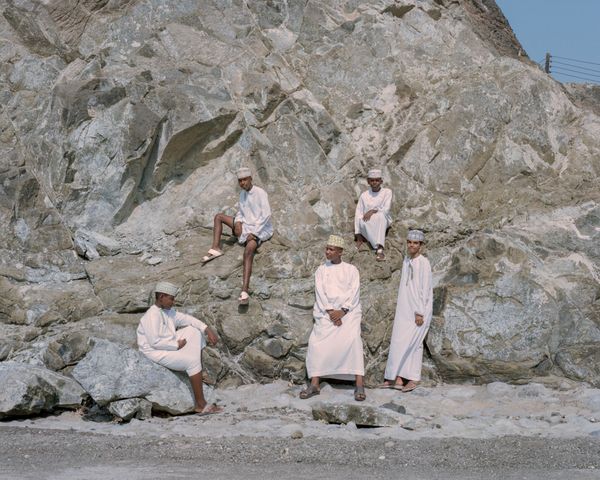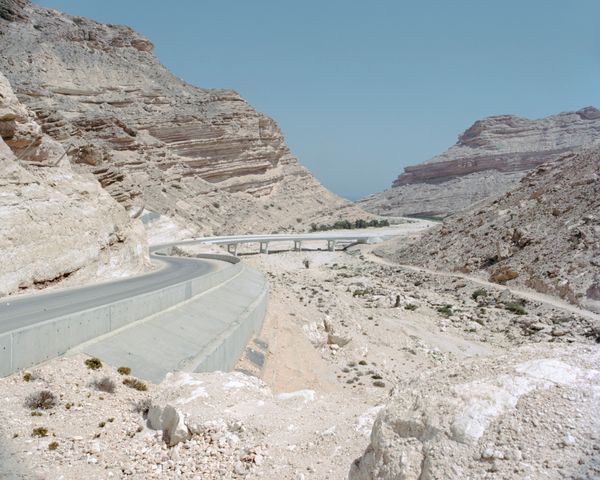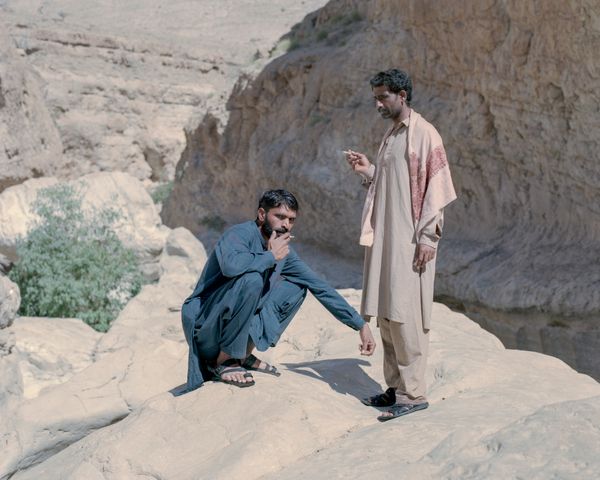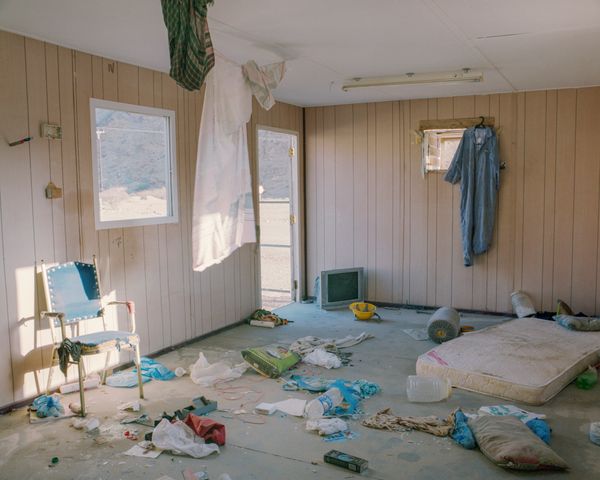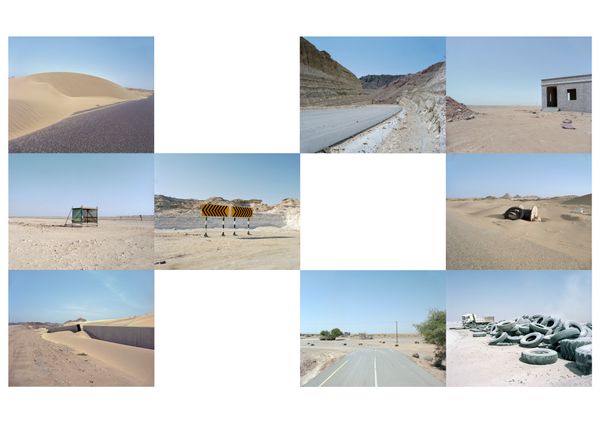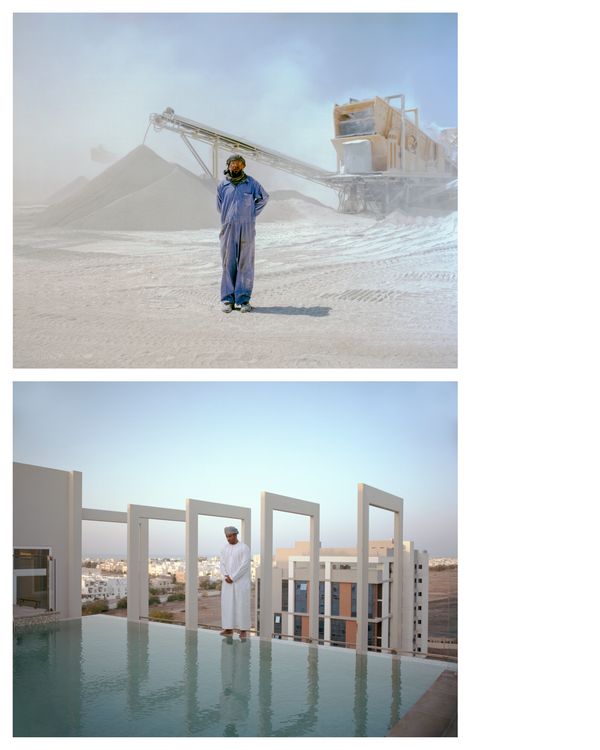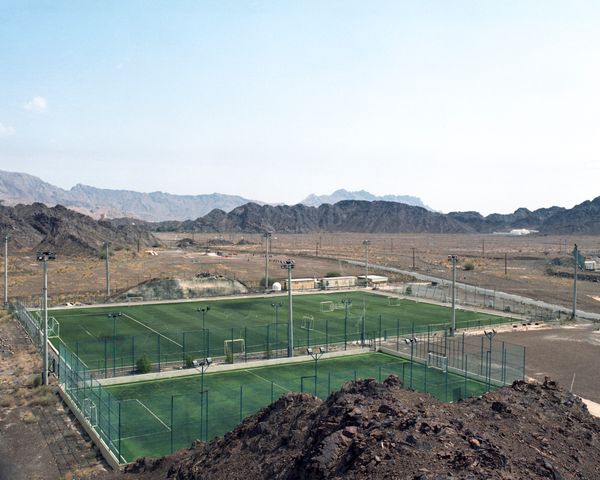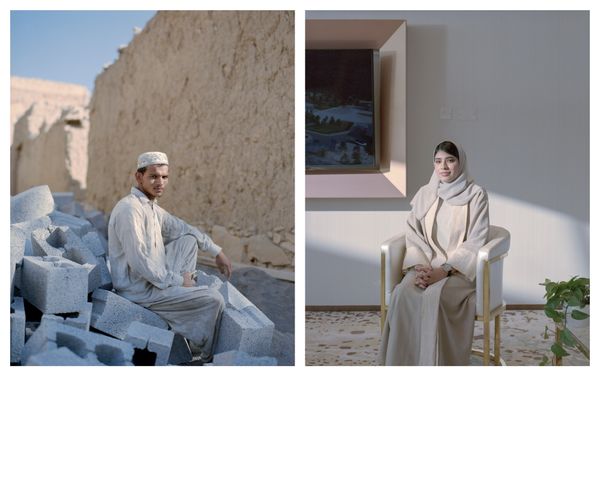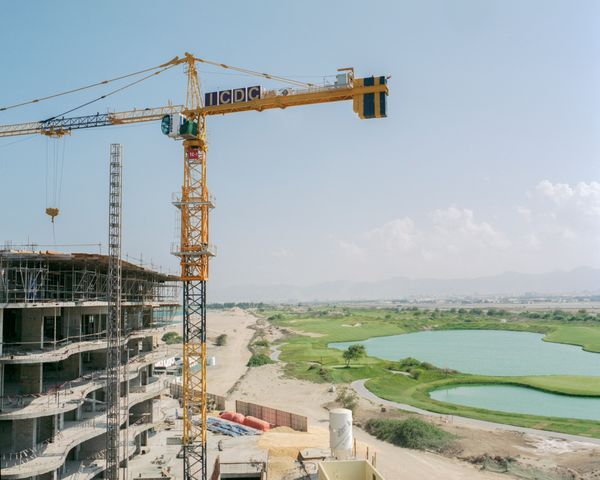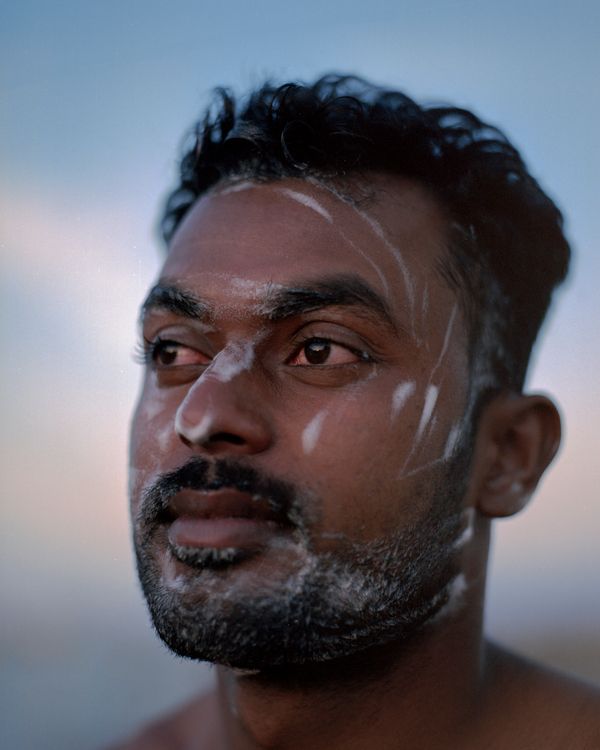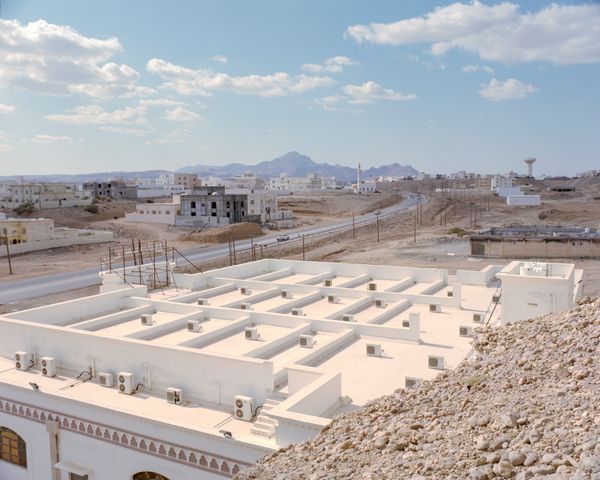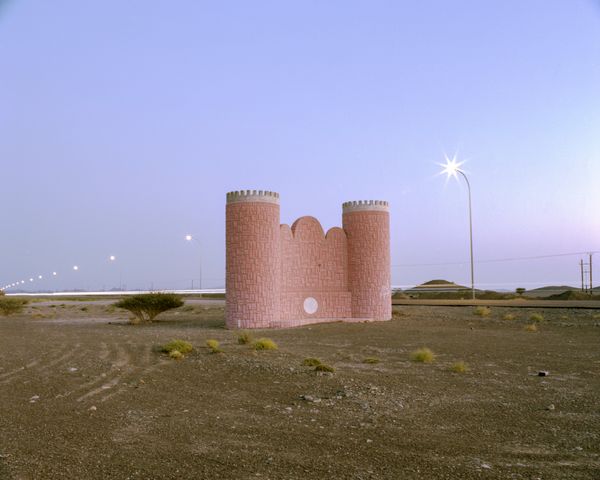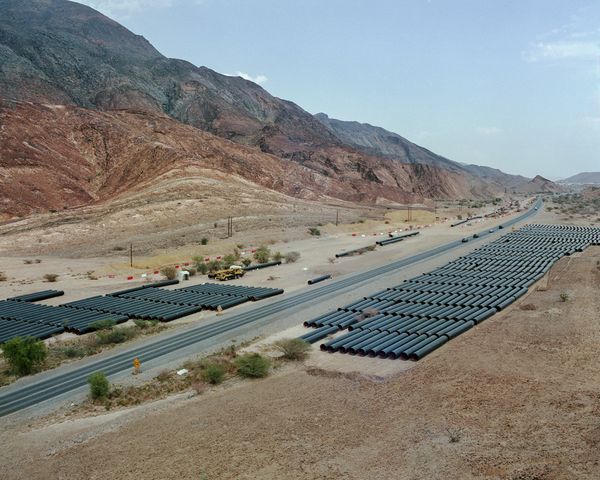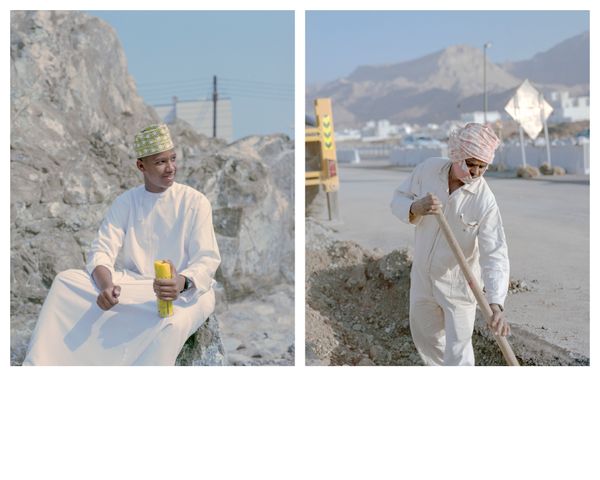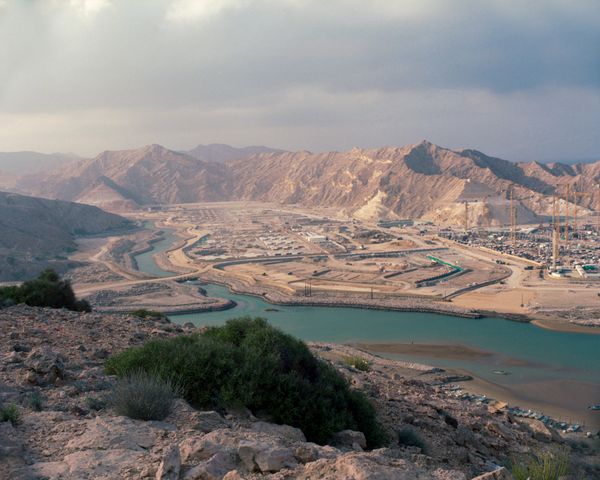ASHES OF THE ARABIAN'S PEARL
-
Dates2021 - 2023
-
Author
- Location Oman, Oman
-
Recognition
-
Recognition
Ashes of the Arabian's Pearl explores the economic development and territorial planning of the Sultanate of Oman in the face of the depletion of oil and gas resources and the country's monarchic transition following the death of Sultan Qaboos. "Ashes
On January 10, 2020, the Sultanate of Oman mourned the death of Qābūs Bin Sa‘īd Āl-Būsa‘īdī, a revered monarch whose fifty-year reign was marked by unprecedented longevity, setting an absolute record in the Arab world. Throughout these years, Sultan Qābūs established himself as the founder of modern Oman, dedicated to rapidly developing the country through oil wealth and driven by the myth of "Nahda" or "renaissance."
Since assuming power in 1970, the influx of Asian migrant workers has continuously increased, currently comprising 40% of the population. To counter this near-demographic equality, Sultan Qābūs, fueled by nationalism, implemented an "Omanization" plan in 1988, which is still in effect today, aiming to reduce the country's dependence on foreign labor.
During his reign, while the influx of Asian migrant workers kept rising, the oil and gas resources continued to deplete. Shortly before his death, this situation led Qābūs to conceive a new development policy known as "Oman Vision 2040." Now, his cousin, the current Sultan Haitham Bin Tariq, is tasked with continuing the initiated work.
Between the end of a successful reign for Sultan Qābūs and the beginning of Haitham's reign, "Ashes of the Arabian's Pearl" seeks to examine this period of monarchical transition, materialized by an urgent need for economic diversification due to the depletion of oil and gas resources. Over nearly three years, from 2021 to 2023, this documentary project arose from a desire to closely observe the dynamics of economic development and the subjective future of this Gulf monarchy.
This photographic research invokes the past - the glorious time of Qābūs - by employing a concept of urban geography, the "tomason," which aims to identify a unique category of objects, spaces, and buildings that intrigue us because they seem out of place, known to be remnants of the forgotten past. But what past? Why are they there? What purpose did they serve? How long will they remain? These mnemonic signs reflect the connection between space - that of territorial development - and time - that of Qābūs's glorious reign - in nostalgic and memorial processes.
"Ashes of the Arabian's Pearl" also delves into the lives of thousands of men, the workforce and builders of the country, mainly from India, Pakistan, and Bangladesh. This project aimed to illustrate their major roles in the ongoing development policy while highlighting their working conditions often neglected by Omani decision-makers and entrepreneurs.
Because workers are not the sole actors in this development, this documentary project also intends to showcase, in contrast to the employees, the prevailing lifestyles of Omani entrepreneurs and their families. It seeks to foster dialogue between two categories of populations: those who employ and those who are employed. A series of portraits - sometimes in the form of diptychs - but not only, emphasize the connections and hierarchies embodied in this phenomenon of globalized labor migration.
"Ashes of the Arabian's Pearl" is multidisciplinary, combining a collection of archives (resignation letters, canceled visas, medical orders and reports, pay stubs, dietary regimes, circulars, time sheets, etc.), sound recordings, objects found in abandoned labor camps - photographed in the studio as an inventory - (tools, clothing, maps, personal items, etc.), and a set of over a hundred medium-format photographs.
Like the Sultanate of Oman, this project exists on the border of a dual temporality, thus becoming a bridge between past and present.
